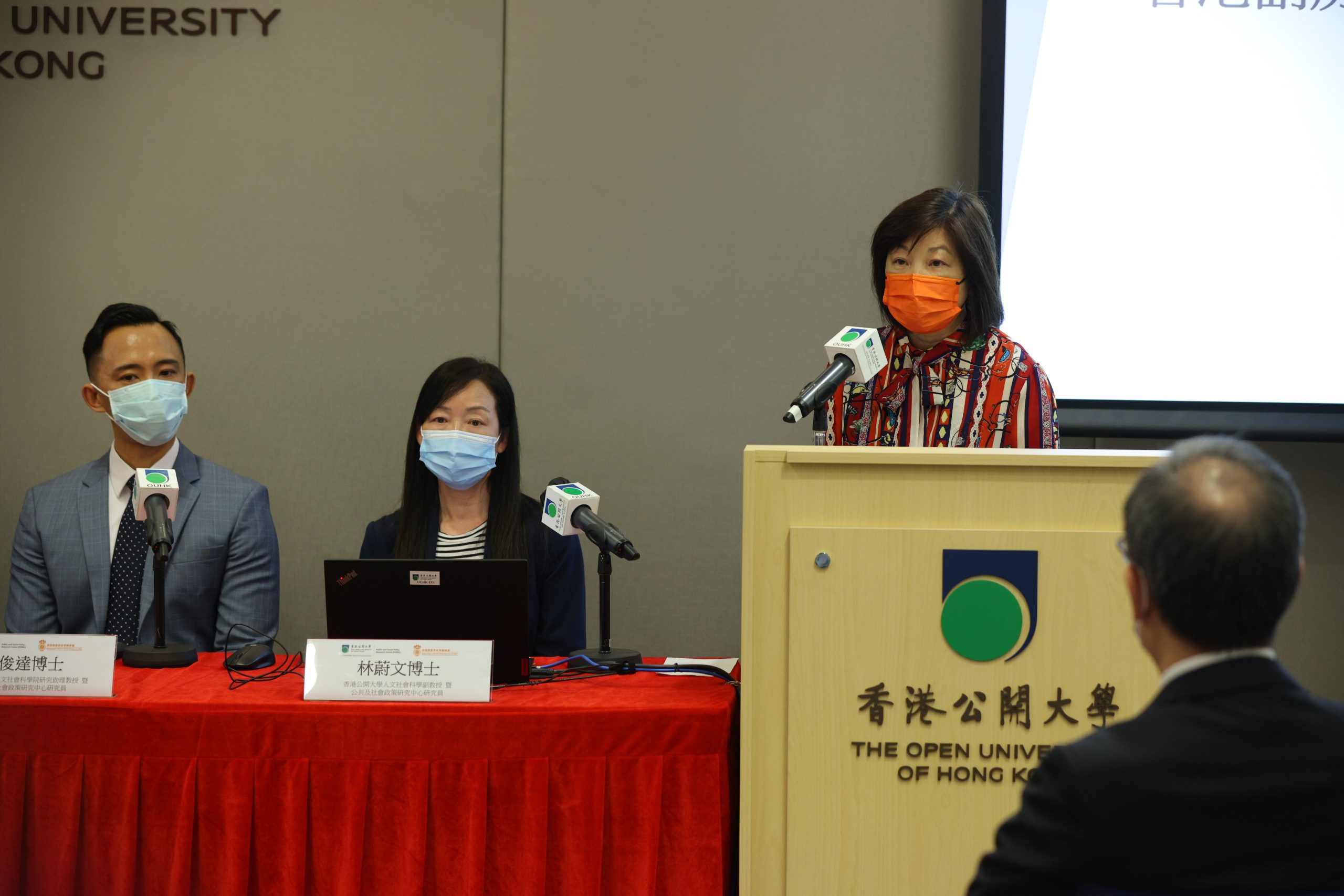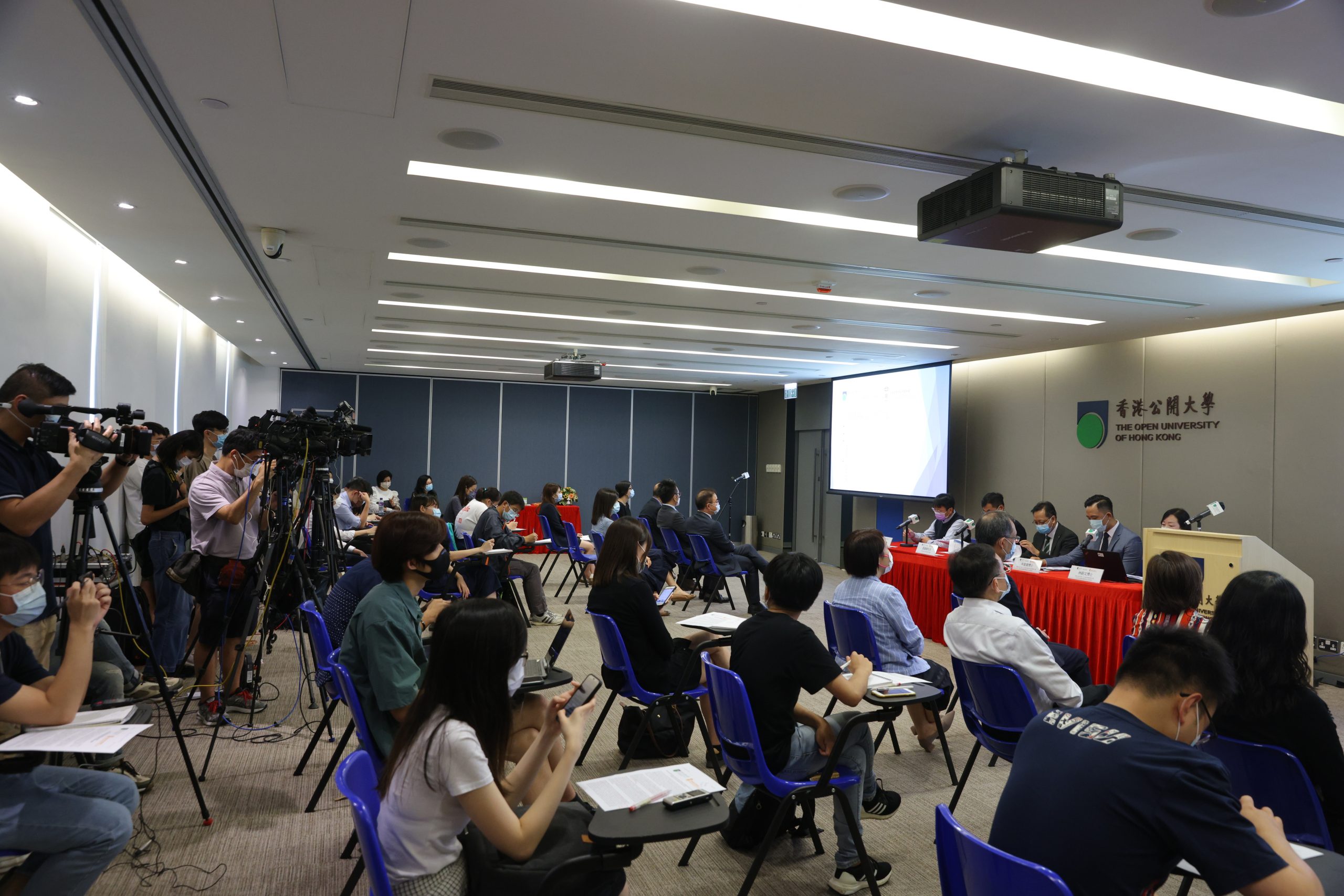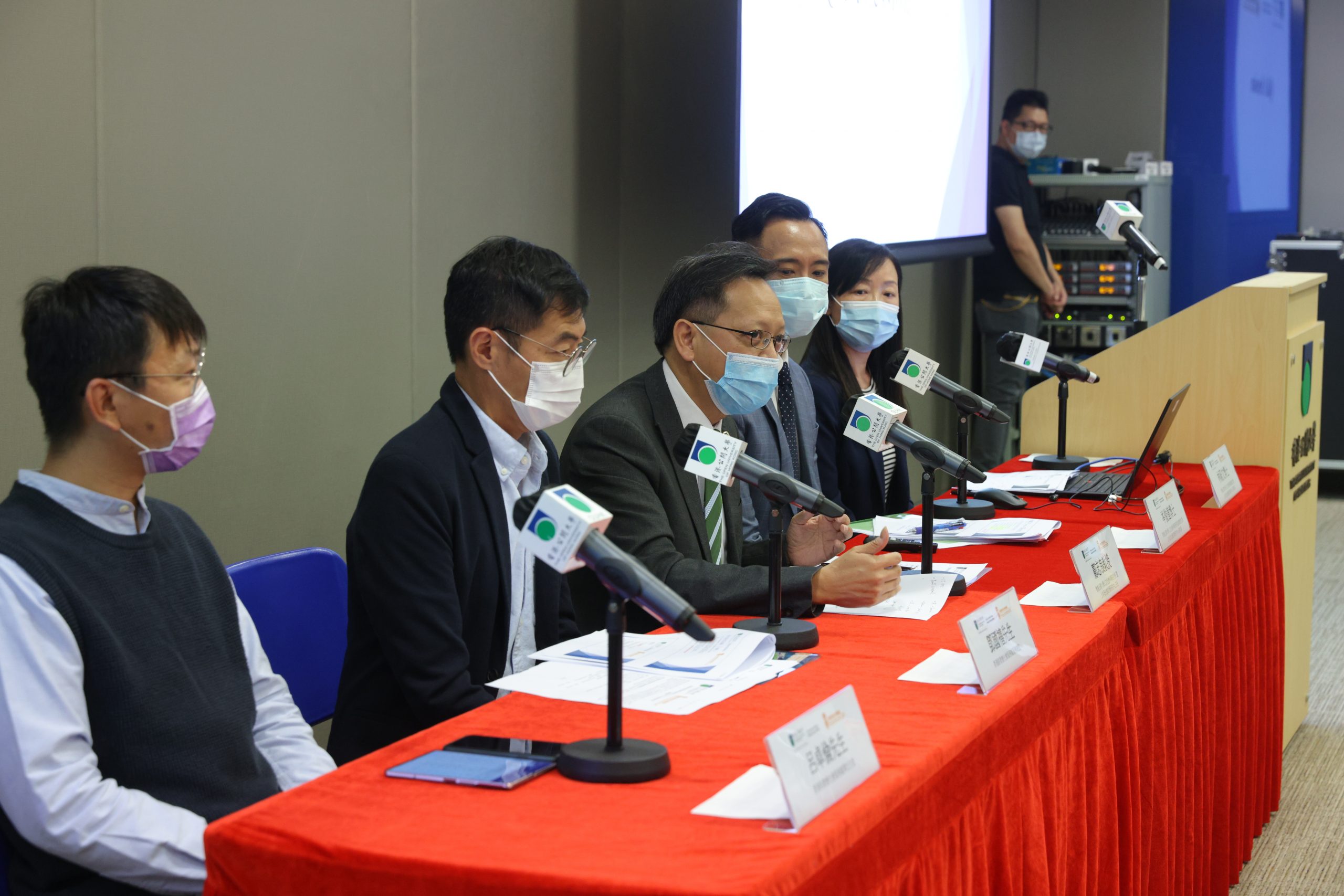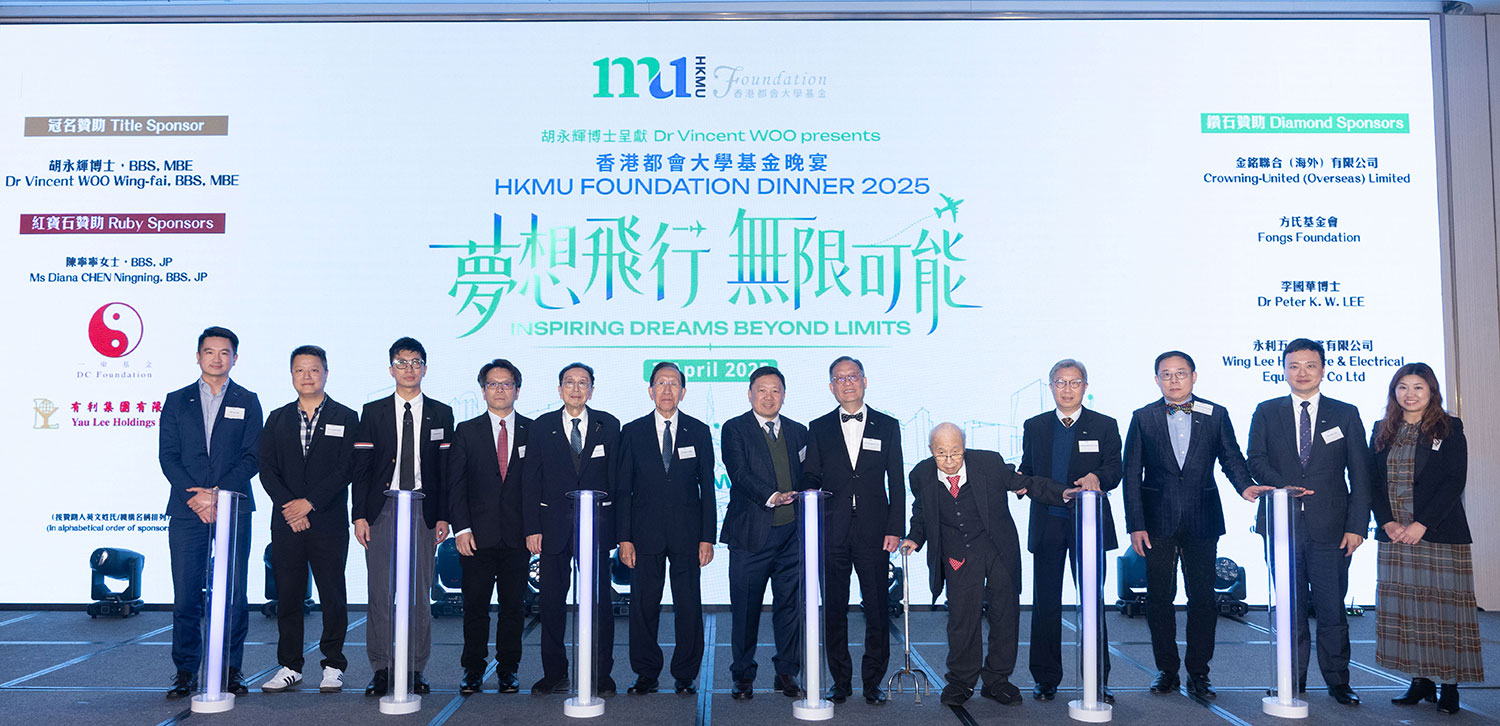To offer a short-term solution to housing problem, the government announced the transitional housing projects in 2018. Non-government organisations (NGO) have been coordinated to increase the supply of transitional housing units. However, relevant studies on the residents' needs for transitional housing are very limited. In order to allow the operating NGOs to identify the actual needs of the residents, the Public and Social Policy Research Centre under the School of Arts and Social Sciences of The Open University of Hong Kong (OUHK) and the Hong Kong Lutheran Social Service, LC-HKS (HKLSS) have jointly conducted a research to gauge the views of the residents of sub-divided units on transitional housing. Based on the findings, suggestions on the construction and re-construction of transitional housing in the future are made.
OUHK and HKLSS jointly announced the first phase of research findings today (3 June). The research team conducted in-depth interviews with 15 families of subdivided units living in the North District, Tsuen Wan and Sham Shui Po in December 2020 to examine their current housing problems, expectations of transitional housing and an ideal home. The research team found that residents of subdivided units are facing different housing problems, including insufficient space, lack of privacy, safety concerns, hygiene issues and expensive rent. Nearly half of the respondents rated their current living units as unsatisfactory.
Regarding the expectation on transitional housing, majority of the respondents (93.33%) do not accept or even object to the concept of “co-living”. They believe that sharing space or facilitates will create various issues. For example, disputes may be raised when the toilet and kitchen are used in turn as they have different habits. Two-thirds of the respondents hope that they can stay in the transitional housing until they are allocated public housing flats. They also hope that more and better living space, greater privacy, improved safety and hygiene and transportation nearby different community facilities will be available for the transitional housing. Besides, all respondents hope that the rent of transitional housing can be set below HK$5,000. For the expectation of an ideal home, all respondents look for a more spacious area for themselves and their children. They also hope that the rent can be comparable to the public housing.
Concluding the findings, the research team believes that transitional housing can ease the urgent needs of the residents of the subdivided units, yet the living area per person should not be less than 12.6 square metres and the rent should not exceed one-fourth of the household income. The team is of the view that the government must aim to build more public housing flats and to keep its promise of “maintaining the waiting time of three years” for public housing. The government should also consider all possible options to increase land supply. Implementation of tenancy control on subdivided units is indispensable and it is necessary to establish a clear timetable for legislation and introduce relevant penalties. To deal with the housing poverty situation in Hong Kong, the team pointed out that it is necessary to adopt a multi-pronged approach by implementing short, medium and long-term policies to rebuild the housing ladder so as to phase out those inappropriate housing gradually. In the long run, illegal subdivided housing must be completely banned or regulated to ensure that citizens are entitled to live in a dignified environment.
The Public and Social Policy Research Centre of the OUHK was established in 2019 with the funding from the Research Grants Council. The Centre has been actively engaged in the research on housing and ageing issues and achieved remarkable results in the past two years. OUHK President Prof. Paul Lam Kwan-sing said, “The housing problem of the grassroots citizens in Hong Kong has been a major issue in society. Grassroots citizens have to face with high rent and unsatisfactory living environment. The OUHK is pleased to cooperate with the HKLSS in this research, and we hope that the findings can be served as a valuable reference for the government and the industry to plan the transitional housing in the future.”
The Chief Executive of the Hong Kong Lutheran Social Service, LC-HKS, Dr Annissa Lui Wai-ling said, “We thank the research team at the OUHK for visiting families in different districts to have a full picture of the housing need of the grass-root residents. Thus, we can concentrate on the work with the government to implement the Transitional Housing Scheme, which can alleviate the hardship of the grassroots families living in undesirable housing units under limited land and resources.”
About the OUHK:
Established by the Government in 1989, The Open University of Hong Kong (OUHK) has developed into a full-fledged university providing high quality and flexible university education at various levels to secondary school graduates and working adults. As a dynamic and innovative university, the OUHK currently offers programmes of different academic levels to about 10,000 full-time students and 9,000 part-time students. Our mission is to advance learning, knowledge and research that meet students' learning aspirations and society's talent needs, focusing on practical and professional programmes.
The OUHK comprises six Schools, namely School of Arts and Social Sciences, Lee Shau Kee School of Business and Administration, School of Education and Languages, School of Nursing and Health Studies, School of Science and Technology, and Li Ka Shing School of Professional and Continuing Education (LiPACE). LiPACE provides lifelong learning opportunities by offering full-time sub-degree programmes, community learning and professional programmes.
The Council of the OUHK has earlier approved the new title 'Hong Kong Metropolitan University' for the University. The process of amending the ordinance governing the University has been started and formal approval from the Legislative Council will be sought. The new title shows the unique position of the University in metropolitan Hong Kong. It also signifies the University's path of transformation from a modest distance education institution to a full-fledged university and reflects its unique characteristics and strategic focuses.
OUHK website: www.hkmu.edu.hk
University Retitling website: https://retitling.hkmu.edu.hk























